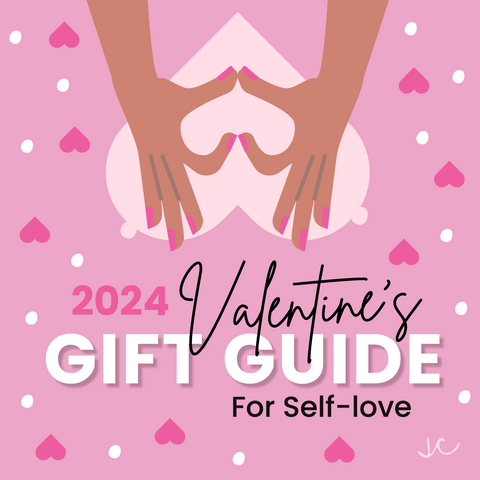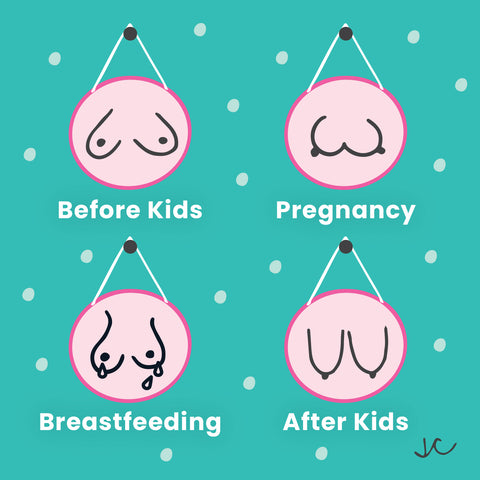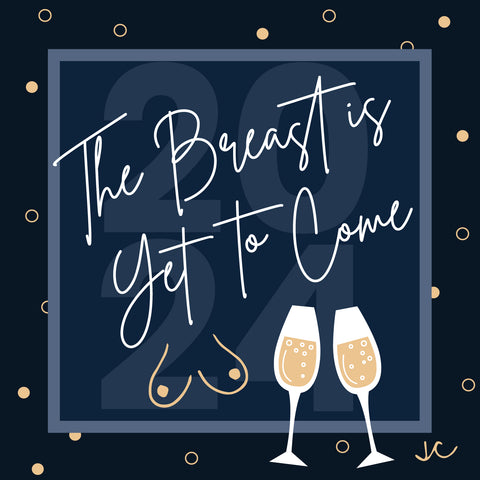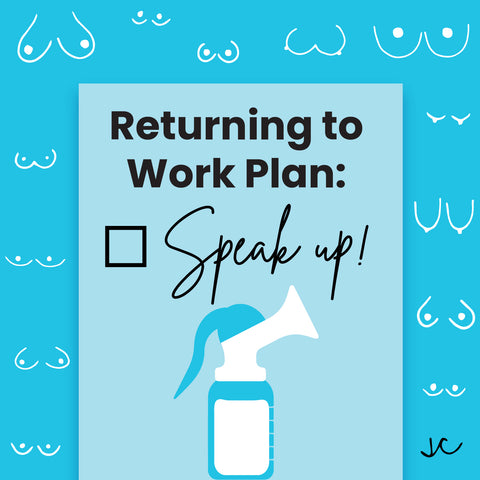Be Part Of The Boobment

Estimated read time: 12 minutes
It’s no secret that at Titty City, we are big fans of Boobs.
Make that HUGE fans.
And throughout our work, we’ve come to realize something.
Talking about Boobs needs to be normalized.
Think about how awesome Titties are. Not only do they look gorgeous, no matter their shape or size, but our Pretty Titties have the power to sustain our babies and contribute to their health and wellbeing. They create the perfect food and provide our little ones with all the nutrients they need for the first six months of life, and beyond!
With Boob talk comes normalizing talking about our bodies in general. There’s so much stigma out there about “the perfect body,” (yep. Still!) but what the heck is that anyway?!
This is where the Boobment comes in.
Our brand new campaign advocates normalizing Boob and body talk. A campaign where we can talk freely and openly about our breasts and our own experiences to:
- Promote body acceptance and confidence
- Help to educate current and future birthing parents about postpartum and breastfeeding, and
- Encourage each other to take care of our breast health
Gone are the days we whisper the words, "Boobies", "Titties", "Breasts", etc. Let's talk candidly about our boobs and take the power back from those who over-sexualize our bodies.
Come be part of the Boobment with us!

Normalize Boob Talk
OK Breasties.
Whether you have pretty itty bitty Titties, glorious large Boobies, Brave Boobies, or anything in between, it’s time to celebrate your breasts.
In a lot of societies, including ours, we’re raised from a young age to not discuss or showcase our breasts. Whether for safety reasons, religious, or modesty, our Boobies have been trained to be hidden away and not talked about. Even when it comes to breastfeeding!
This stigma can lead to a whole heap of issues, both from a mental and physical aspect:
Did you know that around one in five women has common mental health problems? And approximately 91% of women and people with breasts are unhappy with their bodies. And only 5% of women naturally possess the body type that TV loves to portray. And 58% of college-age girls feel pressured to be a certain weight and look a certain way.
Crazy, right?
We see these beautiful, perky Titties plastered in magazines, on social media, and on TV, and it can make us look down at our own girls and think… hmmm… why don’t I look like that?
We’re here to tell you something, sister: Every Titty is pretty and every Titty is different. Heck, even our own Boobs can look different from each other — just like eyebrows, they’re sisters, not twins.
So, what happens?
We neglect our Boobs. Hide them away, thinking they’re not normal. We don’t discuss our bodies and their beautiful imperfections, which contributes to shame about our bodies. All the while, our bodies get over-sexualized (mostly by CIS men), when we do decide to flaunt them a little. In American culture, Boobs have often been regarded as sexual objects, while their nurturing functionality — breastfeeding— has been downplayed.
As such… Boobs seem to = sex.
And what about your beautiful Boobies?
Maybe they’re droopy or point up, or they spread to the side. However they look, they are yours, and they are beautiful. We don’t all need to look the same and have a standard cookie-cutter image of what society considers beautiful. Your individuality, your differences, and your spirit are what make you YOU.
It’s time to get comfortable talking about our breasts. Whether it’s with your Breasties, sister, cousin, or mom, it doesn’t matter. Sharing our thoughts and feelings and understanding that they probably feel the same way is a powerful way of breaking down stigma and creating a society powered by body positivity.
Normalize Talking About Breast Health
One of the main reasons we started The Boobment is because we are advocates for breast health. And the more we know and understand our bodies, the easier it is to tell if something isn’t right.
More and more people are being diagnosed with breast cancer in their 20s and 30s, which is shocking considering the majority of breast cancer diagnoses are middle-aged and older women (with the median age being 63). Breast cancer affects one in eight women at some time in their lives, and the chances of beating breast cancer can largely depend on finding it early.
How can we find it early? By being familiar with our breasts. Of course, not every symptom is the same, and you don’t always get a physical clue that something might be lurking.

The main symptoms of breast cancer are:
- Unusual changes (however small) in the shape or size of one of your breasts.
- If one of your breasts looks lower than the other (and that’s not normal for you).
- A lump or swelling in the breast, upper chest, or armpit.
- Pain or discomfort in a localized part of your breast that’s there most of the time — if not all the time (this can include your chest or under your arms). Remember it’s perfectly normal to get painful or tender breasts leading up to your period.
- Changes to the skin, such as dimpling or puckering.
- Changes in skin color or a rash around your nipple area.
- Changes in your nipples. For example, if your nipple suddenly looks inverted or if it appears to have changed position or shape.
- Crusting around the nipple area.
- Discharge leaking from either of your nipples.
Looking at these symptoms, the best way to discover them is by being familiar with your breasts. Knowing what is normal for you. And the best way to do this is to check them. It’s recommended to check your breasts once a month. It’s quick, easy, and can help put your mind at ease. We’ve even written a Boobie guide all about it (which you can read here).
Regular screening for breast cancer can help detect it in its earliest stages, and most organizations recommend women be given the option to begin screening with a mammogram every year starting at around 40.
So, what does this mean, mama?
It means it’s crucial to keep on top of your breast health. It means getting to know your Boobs (and we mean REALLY get to know them), getting comfortable examining yourself, being proactive and scheduling your screenings and health visits, and not putting them off.
Talk about breast health with your friends, sisters, mom, daughters, co-workers, neighbors... anyone with breasts (that is men, too, by the way!) Because the more we talk about it and encourage each other to regularly check their breasts, the more routine and normal it will become. Let's normalize talking about breast health together!
Normalize Breastfeeding
One of our favorite topics... Breastfeeding!
After all, the Titty City journey started when our founder, Jessy, started breastfeeding her sweet baby. She saw just how powerful and amazing breastfeeding is, but, sadly, how poorly breastfeeding is STILL received when done in public.
Yep. Boobs can be plastered all over the runways or on billboards in teeny bikinis, but when a mama uses hers to feed her child…nope! That’s just icky. In fact, a study in 2001 found that only 43% of American adults believed that women should have the right to breastfeed in public!

UGHHH!
Breastfeeding in public shouldn’t be an issue. And women shouldn’t have to feel like they have to cover up whenever their baby needs a feed. The sad truth is, that a lot of mamas stop breastfeeding because they find nursing in public so intimidating.
There were 3.61 million babies born in America in 2020. Of that number, 75% of mothers start out breastfeeding, and at the end of six months, this falls to 43%, and only 13% of babies are exclusively breastfed.
Part of the reason why the rates drop is that a lot of new mamas don’t fully understand the benefits of breastfeeding. Studies also show that many new mothers don’t receive the support they need to breastfeed successfully (because breastfeeding can be really hard). Even though it’s described as “natural,” is it also an art form that needs to be learned by both the mother and the baby. Skills such as latching, how to hold your baby, and other techniques may need to be taught.
Studies have also shown that women with friends who breastfeed (and do so successfully) are more likely to choose to breastfeed, and that negative attitudes of friends and family can pose a barrier.
So. What does this tell us?
That normalizing Boob talk NEEDS to happen. The more we talk about our breastfeeding journeys, our struggles, and our challenges, the more women will feel secure, comfortable, and encouraged that what they are going through is normal.
During not even one of our founder, Jessy’s prenatal appointments was breastfeeding discussed. Or how postpartum can feel, or the rage of hormones after giving birth. This can lead to isolation, depression, anxiety, and choosing not to continue breastfeeding.
Well, sisters. If our doctors aren’t going to do it, then WE need to do it.
We can create change. We can shine the light on breastfeeding challenges, and life postpartum, and be the support we so desperately need for each other. Remember, motherhood is not a competition, it is a community!
Be Part of #TheBoobment
And Breastie, this is why we have started the Titty City Boobment. So we can create a sisterhood of change. Where women and those who have breasts are free to talk openly about their bodies and experiences. We’re not nursing in public restrooms anymore. We refuse to feel ashamed about our bodies. We’re here to normalize everything our bodies do, look like, and go through.
Let's lift each other up! Will you join us?

At Titty City Design, we believe that every boobie is beautiful, and that should be celebrated. We are a female-owned and operated, small business here to spread self-love and body positivity with our line of boob apparel, boob accessories, and boob-themed decor and products for the home. A portion of our proceeds goes to help support postpartum people and breast cancer patients.
Strike up conversations about #TheBoobment with our products











